In the high-stakes arena of travel technology, where behemoths like Expedia and Booking.com command billion-dollar infrastructures, an Algerian immigrant with no formal education or Silicon Valley pedigree has rewritten the rules of engagement. Khalid Meniri’s Selfbook isn’t just another payment processor—it’s the invisible nervous system powering hospitality’s digital transformation, turning every hotel website into a conversion engine that rivals Amazon.
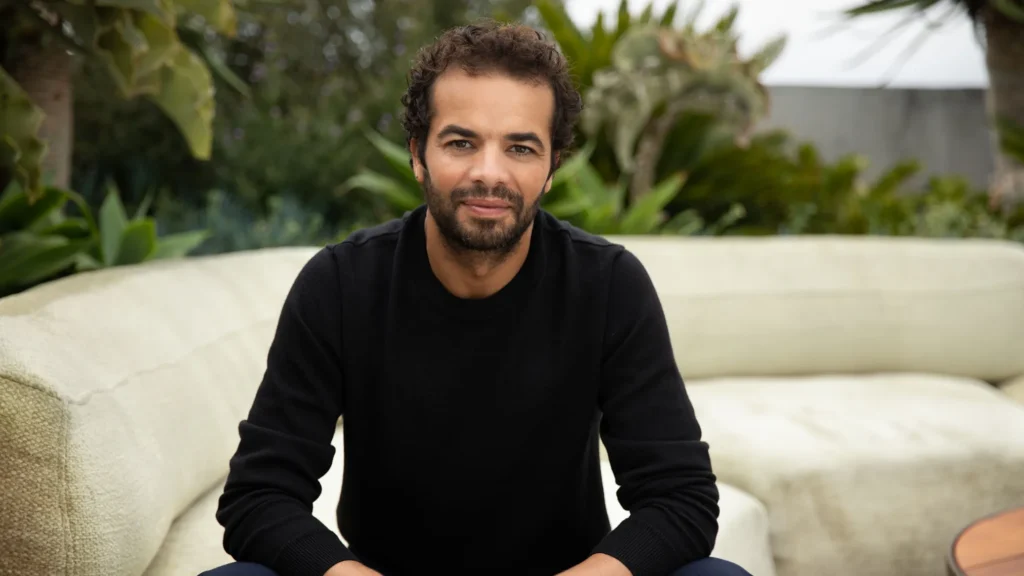
This is the story of how:
Geopolitical barriers became the ultimate business training ground
Launching during COVID’s darkest days proved to be perfect timing
Technical alchemy made Apple Pay work with 1960s-era hotel systems
One resort’s leap of faith ignited an industry-wide revolution
Today, Selfbook delivers staggering results for luxury properties:
40% higher conversion rates than legacy booking systems
44% reduction in cancellations through smart payment technology
First-ever digital wallet integrations for global hospitality
Seamless API connections between antiquated and modern platforms
All built from a New York apartment by a founder whom the industry initially dismissed.

The Forge of Resilience (Pre-2020) – An Education in Scarcity
Algerian Beginnings: Where ‘No’ Was the Default Answer
Meniri’s childhood in Algiers was a masterclass in overcoming systemic barriers:
- Travel restrictions: Visa rejections made international movement nearly impossible
- Technology gaps: Limited access to modern computing resources
- Economic isolation: No exposure to venture capital ecosystems

“When every door is locked, you develop superhuman patience for picking locks,” Meniri reflects. “Algeria taught me that constraints aren’t obstacles—they’re innovation fuel.”
The Fifth Avenue Crucible (2000s)
A chance encounter with Apple’s flagship store became Meniri’s unlikely university:
24/7 access to Macs served as his design school
The iPod’s packaging inspired his obsession with frictionless experiences
Jobs’ product philosophy shaped his approach to invisible technology

“I’d watch tourists interact with devices at 3 AM, studying what felt intuitive. That store taught me more about UX than any degree could.”
Six Agency: The Accidental Prototype (2010s)
From apartment 6A emerged a design lab that presaged Selfbook:
Curated commerce apps predating Instagram’s shopping features
“One product per day” model that increased engagement 300%
Discovery: Travel experiences drove 70% longer session times than physical goods
“We accidentally found the kernel of Selfbook—people would rather book a safari than buy a watch.”
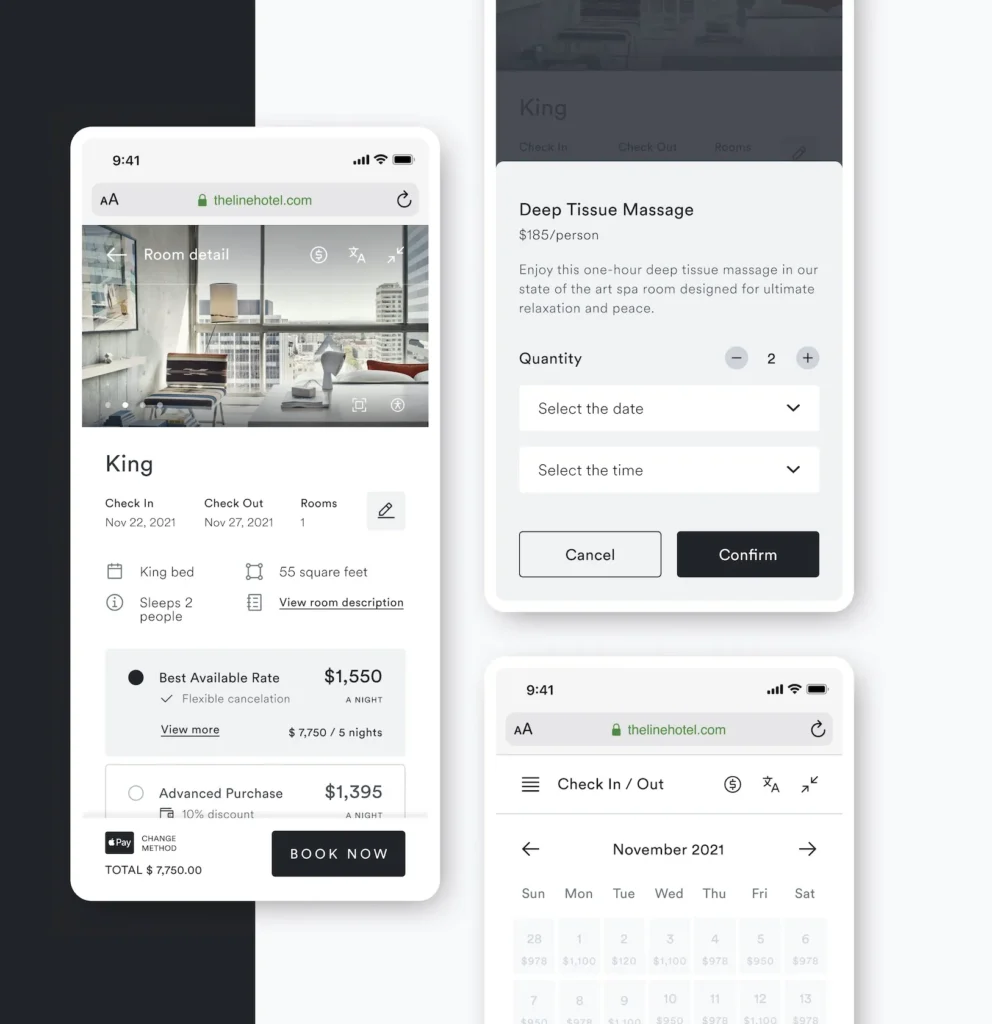
The Perfect Storm (2020) – Launching Into the Abyss
Original Vision: The OTA Killer (March 2020)
Selfbook began as a consumer app with radical ambitions:
Direct hotel bookings bypassing Expedia’s 25% commissions
Mobile-first UX inspired by WeChat Pay’s fluidity
Launch timing: Days before WHO’s pandemic declaration
“Our first investor meeting was March 11, 2020—the day travel died.”
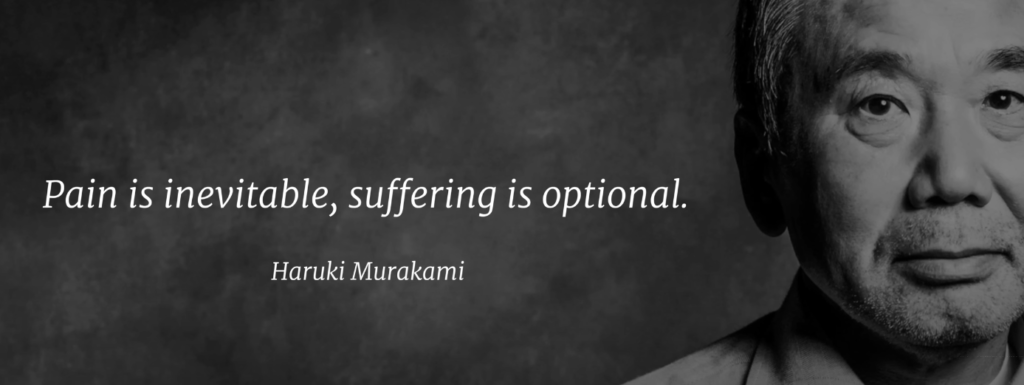
The Pivot That Redefined an Industry
Facing extinction, Meniri identified hospitality’s twin Achilles’ heels:
Payment Primitivity: Luxury hotels couldn’t accept Apple Pay while street vendors could
System Fragmentation: Property management systems (PMS) hadn’t evolved since the 1960s
“We stopped trying to compete with OTAs and started arming hotels to defeat them.”
Nemacolin: The First Believer (July 2020)
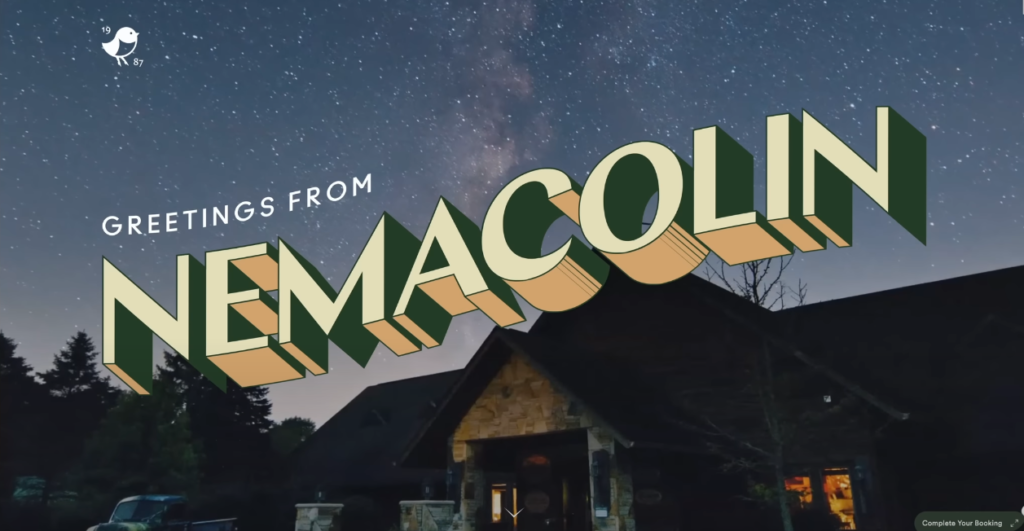
Against all logic, a luxury resort became Patient Zero for Selfbook’s revolution:
Signed pre-product based on vision alone
Integrated during COVID shutdowns
Results: 44% fewer cancellations, still a client today
“Their GM told me, ‘If it’s hospitable, we want it.’ That became our product mantra.”
The Cryptogram Breakthrough (2021) – Engineering Magic
Solving the “Impossible” Problem
Legacy hotel systems couldn’t process modern payments because:
Sabre/PMS relied on magnetic stripe-era protocols
Tokenized payments (Apple Pay) required cryptographic translation
PCI compliance added layers of complexity
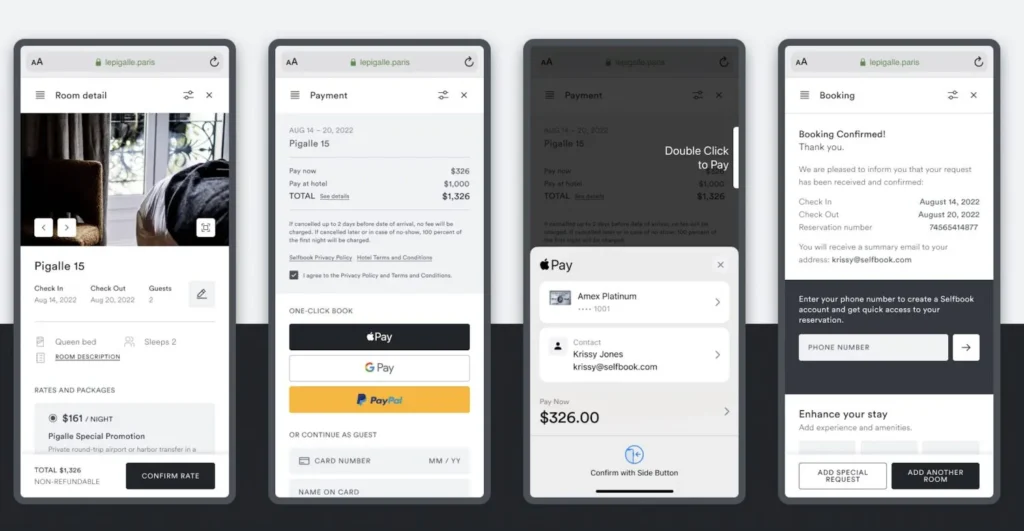
Selfbook’s solution:
Proprietary cryptogram bridge maintaining security
Single line of code integration
500+ engineering hours compressed to minutes
“We made Apple Pay work with systems older than our engineers.”
The Cancellation Cure
Selfbook’s financial tech stack combats hospitality’s silent profit killer:
Dynamic authorization holds adjust based on booking windows
Behavioral scoring predicts fraudulent intent
Result: 44% fewer cancellations than industry average
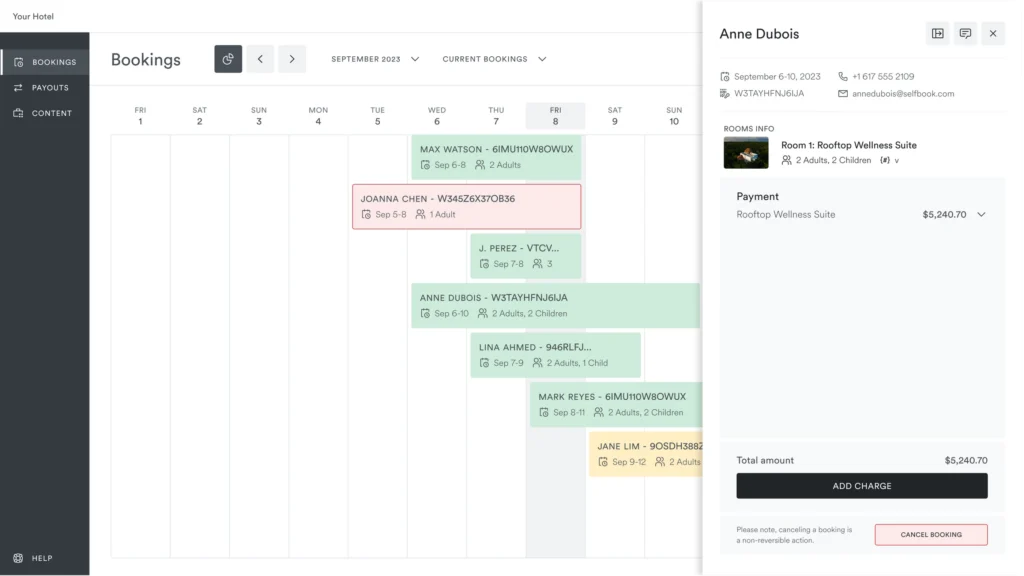
The Relentless Ascent (2021-2022) – From $2M to $300M
Seed Round (April 2021)
- $2M valuation: “We were five people in a WeWork”
- Early thesis: “Hospitality’s Stripe moment”
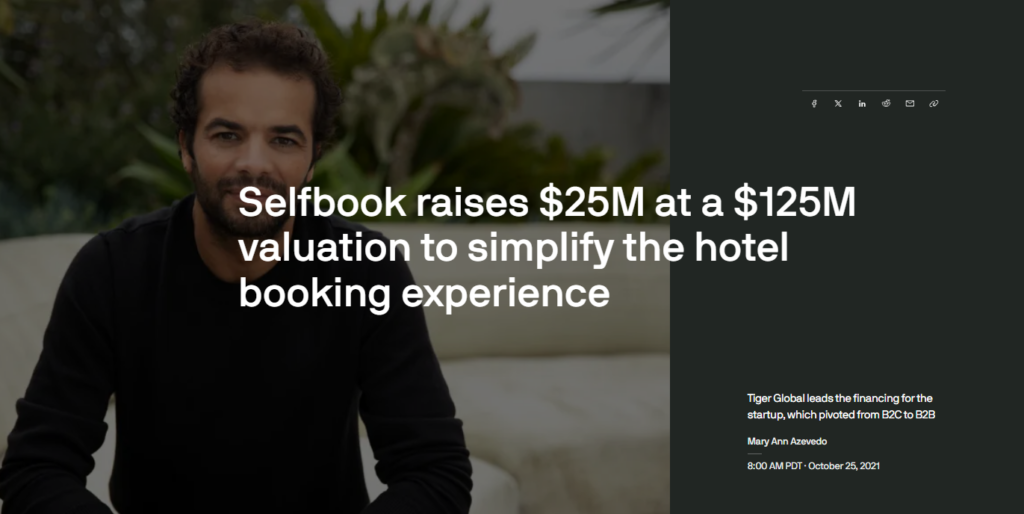
Tiger Global’s $25M Bet (October 2021)
$125M valuation: 62x growth in six months
Alex Cook joins board: “This is Shopify for travel”
The $15M Extension (Q1 2022)
$300M valuation: 2.4x jump in 90 days
JAWS Estates (Barry Sternlicht) invests
Team grows to 70 across three continents
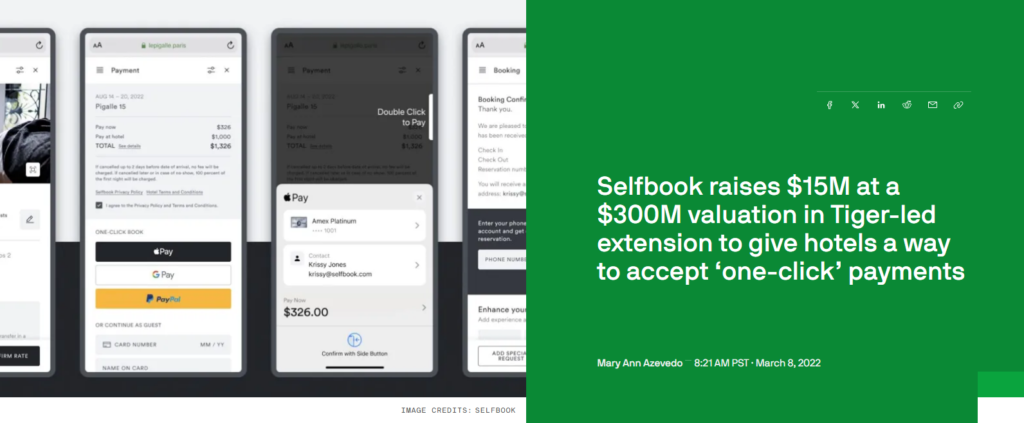
“The extension round closed in one day—just overflow from Series A.”
The Selfbook Playbook – Why This Works
1. Luxury as a Trojan Horse
Started with $1,000+/night properties
Proved ROI with 3-4% revenue lifts
Now moving downmarket to boutiques
2. The B2B2C Illusion
Guest-facing: Feels like consumer tech
Hotel-side: Enterprise-grade analytics
Pricing: 1% fee aligns with client success

3. Augment, Never Replace
Integrates with Opera, Sabre, Oracle
PayBox adds smart payments to existing flows
“We’re the iOS to their Windows 95”
The Invisible Revolution
Meniri’s journey offers masterclass lessons:
Constraints create unfair advantages
“Scarcity is the ultimate product manager.”Timing is everything—even when wrong
“COVID gave us runway while incumbents hibernated.”Build bridges, not castles
“Legacy systems aren’t enemies—they’re leverage points.”
With 40% higher conversions, 44% fewer cancellations, and backing from hospitality’s most powerful figures, Selfbook isn’t just changing how hotels accept payments—it’s redefining how travel experiences are bought and sold. In an industry ripe for disruption, Meniri has built the ultimate insider’s weapon: technology that feels like magic but works like clockwork.


Leave a Reply